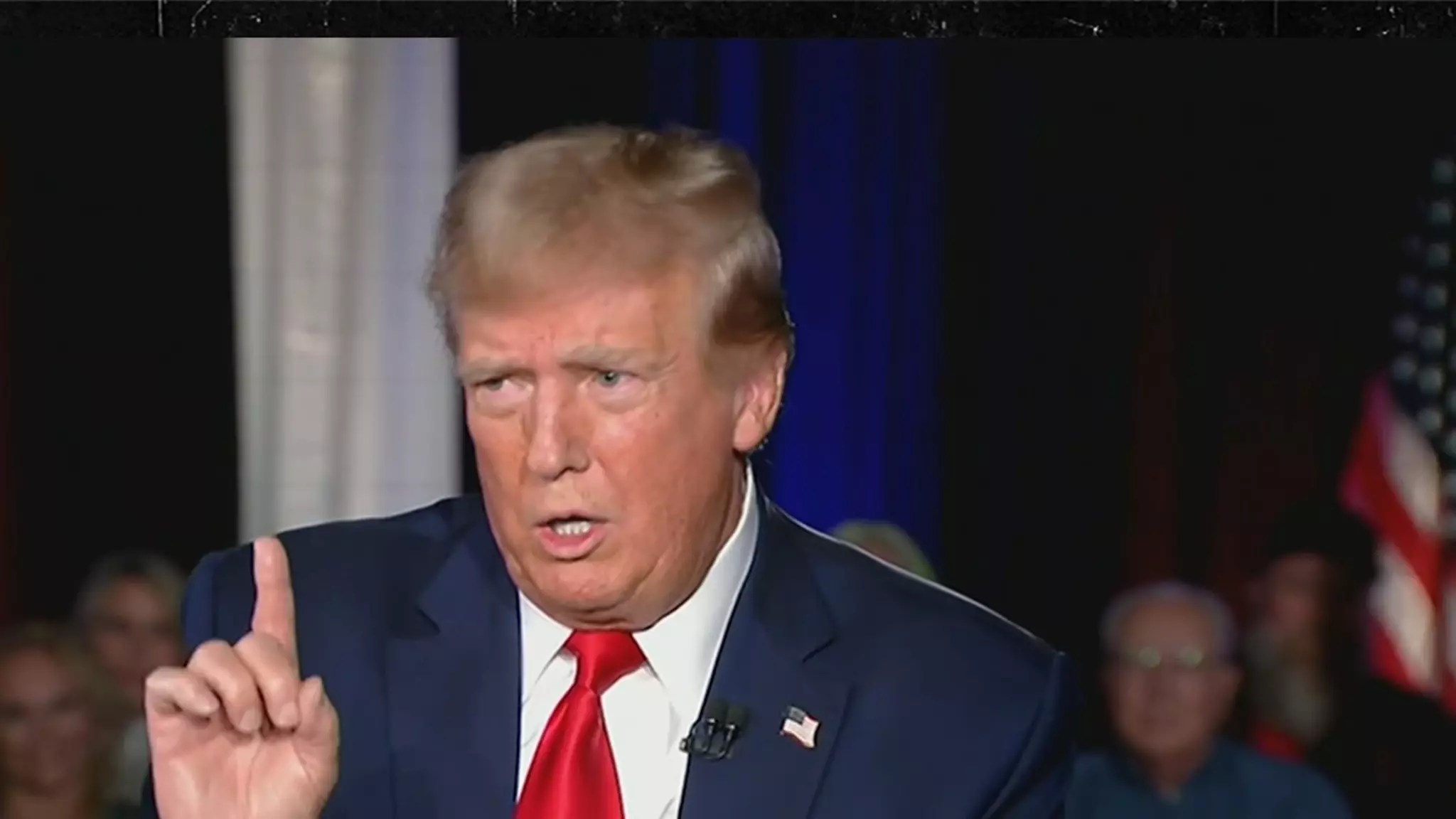President Donald Trump made a stark and unsettling promise during a recent Fox News town hall. In response to a question about potential abuse of power if re-elected, Trump admitted that he would assume the role of a dictator but only for a short period. While this statement may seem alarming, it is crucial to critically analyze Trump’s words and consider the implications of such a statement.
In the lead-up to the 2020 presidential election, Trump has frequently made references to seeking retribution against his enemies once back in The White House. This has raised concerns about his intentions and the potential abuse of power. When questioned by Sean Hannity, the president affirmed his willingness to be a dictator on Day 1 of his second term, only to retract that statement concerning future periods of his presidency. Additionally, Trump specified that he would utilize his dictatorial powers to close the border unilaterally and facilitate oil drilling.
It is essential to acknowledge the historical connotations and implications of the term “dictator.” As the world has witnessed throughout time, dictators are rarely inclined to relinquish power willingly once they have seized it. Trump’s use of this term raises questions about his commitment to democracy and the potential erosion of democratic norms during his presidency. However, it is vital to further analyze the specifics of what Trump meant by embracing this label.
One possible interpretation of Trump’s statement is that he was referring to the utilization of executive orders, a common tool in a president’s arsenal. Executive orders are mechanisms through which the president can enact policy without congressional approval. While it is true that some executive orders have been criticized as overreaching, they do not inherently equate to dictatorial powers. Therefore, it remains uncertain whether Trump’s reference to being a dictator aligns with the traditional understanding of the term or if it was merely a rhetorical flourish.
Trump’s statement about embracing the title of dictator raises broader concerns about the balance of power within the executive branch. The presidency holds immense power, and it is crucial for any leader to exercise that power responsibly and within the boundaries of democratic principles. Trump’s cavalier attitude towards the term “dictator” raises questions about his understanding of, and respect for, the limits placed on his role as the President of the United States.
A Mobster Comparison
During the town hall, Trump compared himself to the notorious mob boss Al Capone, emphasizing their shared experience of facing indictment. However, Trump’s claim that he has been indicted four times falls short when compared to Capone’s six indictments. While this may seem like a trivial matter, it highlights Trump’s propensity for exaggeration and self-aggrandizement. Such behavior erodes trust and raises doubts about the integrity of his statements.
Donald Trump’s promise to assume the role of a dictator, albeit temporarily, is undoubtedly disconcerting. However, a critical analysis reveals that the term “dictator” may only be symbolic, rather than indicative of a genuine intent to seize authoritarian power. Nevertheless, it remains crucial for citizens and policymakers to remain vigilant and ensure that democratic principles are upheld, regardless of the rhetoric used by those in power. The future of a nation depends on the collective commitment to safeguarding democracy and preventing the erosion of essential democratic norms.







Leave a Reply